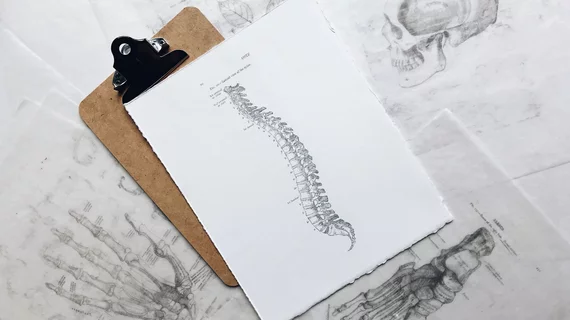FDA clears AI software for early osteoporosis intervention
Notching its fifth go-ahead from the FDA, an Israel-based AI startup has received the agency’s 510(k) clearance to market software that automatically identifies signs of compression fractures in the spine.
Zebra Medical Vision announced its latest win in the U.S. May 18, saying the new vertebral compression fractures (VCF) product is aimed at helping clinicians improve care for patients at risk for osteoporosis.
It’s the fourth AI offering in Zebra’s lineup of bone-health aids, according to the announcement.
Zebra says the product works with abdominal or chest CT scans performed for any clinical indication and is already installed at sites in the U.K. and Australia.
The company’s CEO, Ohad Arazi, JD, says 70% of vertebral compression fractures go undiagnosed around the world.
“These missed care opportunities are especially vital during this era of COVID-19, when many patient procedures have been postponed and providers are dealing with substantial backlogs,” he adds. “The VCF product will allow us to expand our reach in the U.S. and help more clinicians and caregivers identify a large number of these fractures.”

